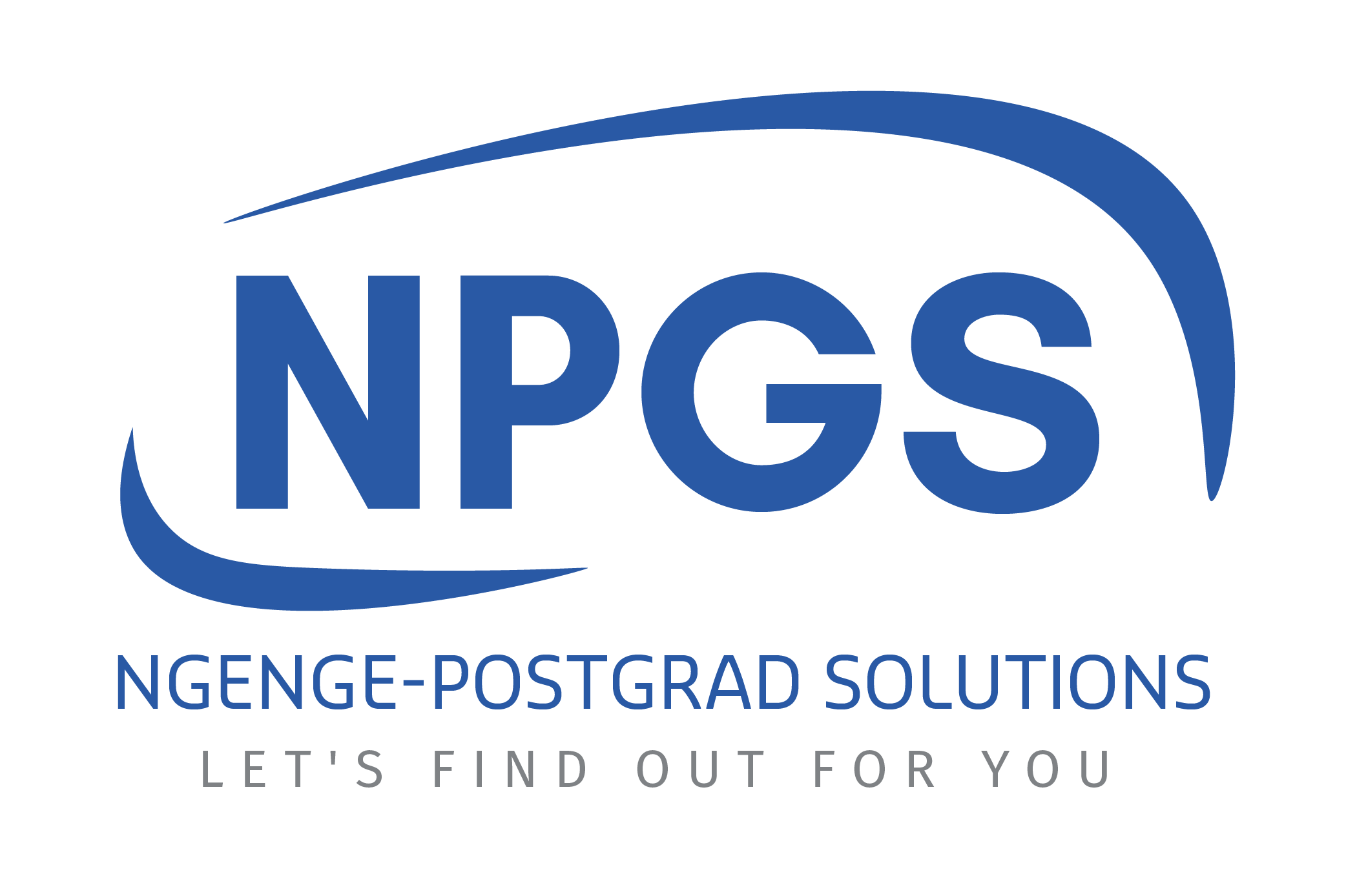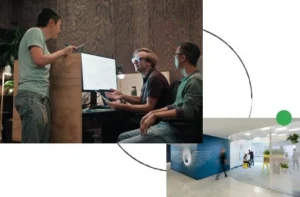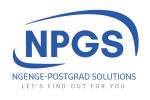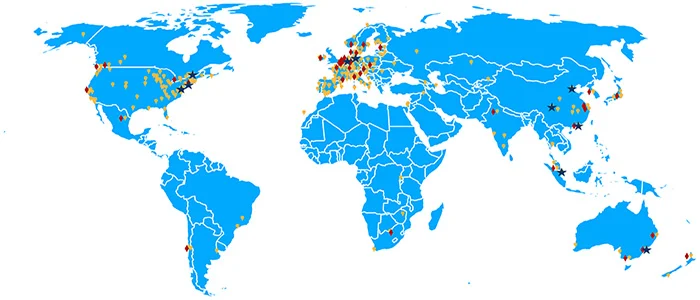The Humphrey Fellowship Program is for experienced professionals interested in strengthening their leadership skills through a mutual exchange of knowledge and understanding about issues of common concern in the U.S. and Fellows’ home countries. As a non-degree program, the Fellowship offers valuable opportunities for professional development through selected university courses, attending conferences, networking, and practical work experiences. During the year, Fellows pursue both their individual program goals and work closely with their Humphrey colleagues in workshops and seminars. Unlike a typical graduate school experience, the Program encourages Fellows to travel away from their host campus to learn more about American culture and to network with their American peers. If you are interested in broadening your perspectives and becoming a global leader, the Humphrey Fellowship is for you.
Basic Eligibility Criteria
- An undergraduate (first university or Bachelor’s) degree
- A minimum of five years of full-time, professional experience
- Limited or no prior experience in the United States
- Demonstrated leadership qualities
- A record of public service in the community
- English language ability
PROGRAM FIELDS
Human and Institutional Capacity
Economic Development
This field may be interpreted very broadly. Suitable candidates include policy makers and administrative managers focusing on contemporary development issues including population growth, agriculture and industrial development, poverty and income distribution, labor markets, and foreign trade. Individuals who are working in the fields of sustainable development and micro-finance in the public or private sector are also appropriate.
Finance and Banking
Suitable candidates include individuals who are involved in the management of financial institutions, the regulation of depository institutions and securities, transnational lending and trade financing, or public-private partnerships. Corporate financial managers and analysts are appropriate if they are interested in and able to convey how their work will impact the development of the country. Individuals in this field are not suitable for the Humphrey Fellowship Program if they are primarily concerned with expanding a corporate entity’s market share.
Public Policy Analysis and Public Administration
This field may be interpreted very broadly. Policy issues that past Fellows addressed have included: regional economic and workforce development planning; public management and leadership; financial management in public and non-profit organizations; poverty and inequality; gender; public finance and revenue administration; domestic and foreign development policies; political transition to market-based democracy; planning and the global knowledge economy; and private sector development.
Technology Policy and Management
Network administrators, engineers, and urban planners involved in formulating technology policy and planning and managing technological change and systems are suitable candidates in this field. Officials in the Ministry of Education and educators who teach technology and science in higher education institutions and can demonstrate leadership in curriculum development or administration in this field are also appropriate candidates.
Human Resource Management
The most suitable candidates in this field are those individuals dealing with institutional change and setting personnel policies and procedures. These might be human resource managers or individuals from various fields who have been charged with re-organizing a department or ministry, for example.
Rights and Freedoms
Communications/Journalism
Appropriate candidates include those using media in all its current forms to facilitate global development for their country. Journalists in this field could work for private media outlets or state-run public broadcasters with a focus on independent reporting and transparency. Journalists can work in any platform (print, broadcast, online) using digital and social media tools to cover a wide variety of subject beats, including but not limited to public affairs, arts and features, social issues, business news and investigative topics. Other individuals might manage the public or internal communications for non-governmental organizations, for state-run media, governmental agencies and private business enterprises.
International Religious Freedom
Individuals who are contributing to local, national, or international efforts to promote religious freedom are appropriate candidates. Successful candidates may support efforts to combat and monitor religious persecution and discrimination; recommend, implement, or advocate for policies in their country or region to protect or expand rights to freely practiced religions; or develop programs and projects to promote interfaith dialogue and/or international religious freedom.
Law and Human Rights
Attorneys, judges, and human rights activists are the most suitable candidates in this field. The range of law specializations is far reaching; some of the more common include: constitutional, criminal, business, civil rights, family/child, alternative dispute resolution, international humanitarian, international trade, international business, intellectual property, and telecommunications law. Individuals engaged in legal and judicial reform and the administration of justice also are appropriate candidates.
Trafficking in Persons Policy and Prevention
Candidates include foreign government officials, NGO activists, and media specialists who are focused on anti-trafficking issues. Humphrey Fellows can focus in areas of public administration, NGO administration, law and human rights, social work, communications and journalism, and public health as applied to anti-trafficking program management and policy-making.
Sustainable Lands
Agricultural and Rural Development
Suitable candidates include individuals from the public sector, non-governmental organizations, and business focused on agricultural and food system development and/or rural development. The field includes, but is not limited to, the following areas of specialization: food security, sustainable farming systems, agricultural research, extension management, agricultural marketing and value-chain management, post-harvest technology and food safety, trade and food policy, and rural livelihood enhancement.
Natural Resources, Environmental and Climate Change
Natural resource and environmental managers are appropriate candidates for this field. Policy makers working on the protection of natural resources, water quality, pollution control, land use, conservation, and environmental impact assessment are also suitable. Climate change is a critical emerging field open to professionals working in a range of disciplines, including policy development, clean technologies, carbon management, and response planning or adaptation to new climate patterns.
Urban and Regional Planning
Appropriate candidates for this field include architects, engineers, planners, urban designers, urban economists and sociologists, and historic preservation specialists. The field of Urban and Regional Planning should be broadly interpreted to include the following: urban infrastructure, transportation policy and planning, water and sanitation, town and rural planning, land use and urban design, housing and real estate development, international and comparative planning, environmental protection and planning, ecological land development, public policy, social policy, urban redevelopment policy, economic development and planning, regional economic integration, economic conversion, urban finance management, and urban spatial analysis using geographic information systems.
Thriving Communities
Contagious and Infectious Diseases
Physicians, health educators, and practitioners with management and policy-making responsibilities working to prevent, detect, and respond to infectious and contagious disease threats and improve global health security are appropriate candidates for this field.
Public Health Policy and Management
Physicians, clinicians with management responsibilities, health educators, and other practitioners with policy-making responsibilities in this field are suitable candidates. Past Fellows’ interests have included: management of public health care organizations, health care delivery through community-based organizations, reproductive, adolescent and child health, and epidemiology in public health practice. Candidates who are primarily practitioners in their field are not appropriate. For example, dentists whose program goals are to be more effective dentists in a clinical setting are not appropriate candidates for the program. Instead, dentists or other practitioners who are interested in acquiring skills and knowledge to become better administrators of public health programs, which might, for example, promote health education in their community or country, would be a better fit for the program.
HIV/AIDS Policy and Prevention
Physicians, health educators, communication specialists, and policy analysts who are interested in HIV/AIDS policy, treatment and prevention are appropriate candidates for this field. Candidates with a primary focus on clinical treatment are not appropriate.
Substance Abuse Education, Treatment and Prevention
Candidates in this field may be focused on problems of alcohol, drug and tobacco use as well as broader areas of public health that relate to substance abuse, such as HIV/AIDS, mental health, medicine, psychology, social work and counseling. Previous Fellows in the substance abuse field have come from schools and universities, community-based treatment and prevention programs, hospitals, criminal justice settings and local or national policy agencies. Fellows in this field will have access to strong university-based research program as well as contacts with community, state and national professionals and provider groups working in substance abuse.
Educational Administration, Planning and Policy
Individuals who are contributing to national or regional education planning, policy development and implementation make good candidates. University professors with an exclusively academic focus are not suitable; however, university professors in administrative or policy-making positions are eligible. Candidate profiles also include those focused in the more technical areas of education: curriculum development, instruction and learning assessment techniques, program design and adult learning, teacher training, and the use of technology in higher education. These individuals may be teachers if they also have additional responsibilities in the areas above.
Higher Education Administration
This field of study is intended for individuals who devote a significant portion of their professional life to policy formation, strategic decision-making, planning and management in higher education. Individuals holding administrative or policy-making positions at institutions of higher education, non-profit organizations or government ministries are eligible. Suitable candidates also include those focused on functional areas of higher education, such as curriculum design techniques for instruction and learning assessment, vocational and life-long learning programs, and areas of higher education administration such as financial management, student affairs, academic affairs, business affairs, recruitment and admissions, development and alumni relations, and the use of technology in higher education. These individuals can be faculty at institutions of higher education if they also have significant responsibilities in the areas listed above.
Teaching of English as a Foreign Language
Appropriate candidates include teacher trainers and master teachers in the field of Teaching English as a Foreign Language if they are interested in teacher training, curriculum development, and methodology.
FELLOWSHIP STIPEND
The Fellowship provides for:
- Payment of tuition and fees at the assigned host university;
- Pre-academic English language training, if required;
- A maintenance (living) allowance, including a one-time settling-in allowance;
- Accident and sickness coverage;
- A book allowance;
- A one-time computer subsidy;
- Air travel (international travel to and from the U.S. for the Program and domestic travel to required program events);
- A Professional Development allowance for professional activities, such as field trips, professional visits and conferences.







